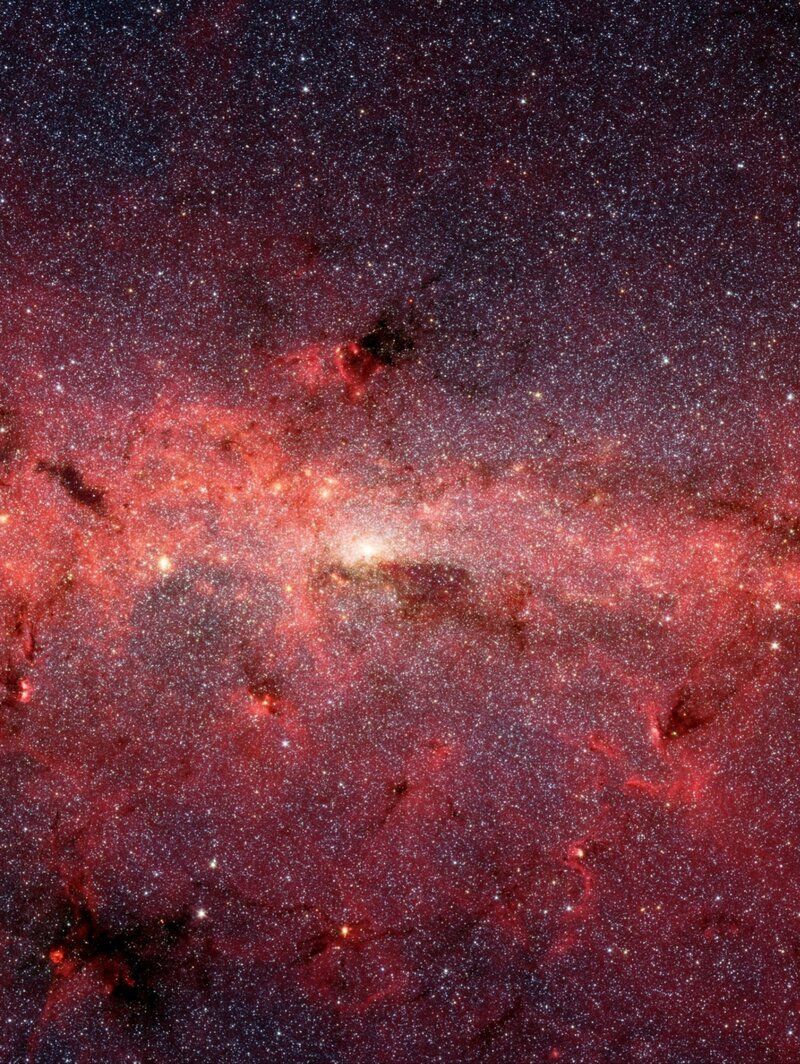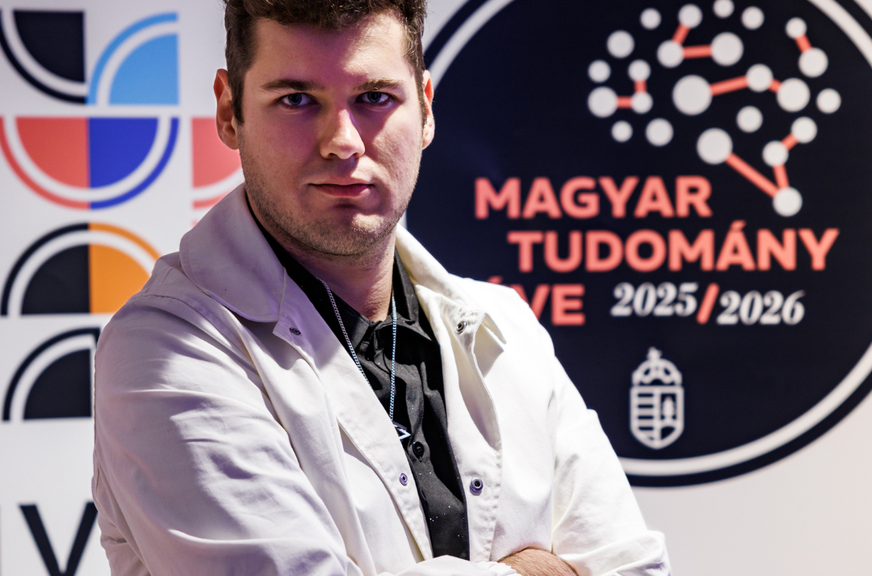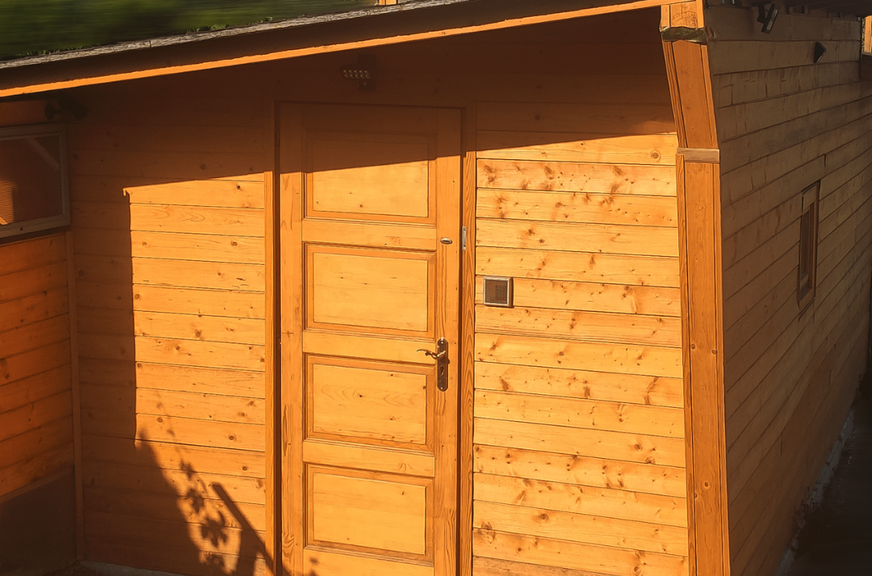Is outer space a frontier for humans? You can follow in the footsteps of the stars with the help of aerospace engineer Felicián Nagy at CODE.


On the occasion of the 200th anniversary of the founding of the Hungarian Academy of Sciences, we are celebrating the Year of Hungarian Science with a series of events. To mark this special anniversary, a Science Ambassador program was launched, and one of its participants, astronaut Felicián Nagy, will talk about the mysteries of space exploration at CODE on November 15.
As a kid, almost everyone gazes at the sky in wonder, wondering what the universe hides and what the stars are telling us. For Felicián Nagy, however, this passion did not end in childhood, and today he explores the human side of space exploration as an astronaut.
When did you realize that your interest in stars was more than just a childhood hobby?
Ever since I was little, I have been interested in the universe: I tried to observe the night sky just as I did the world by daylight. Even as a preschooler, I wanted to understand what was around us and why things happened, and this curiosity has stayed with me to this day. As I got older, this interest shifted more and more toward a serious, scientific direction.

Today, you can say that you are an aerospace engineer. Can you tell us how someone becomes an aerospace engineer? What qualities are needed for this?
Basically, this profession is like trying to squeeze the impossible and the infinite into a measuring chair. The profession of an aeronautical engineer is very complex, based not on the classic professions of the past, but rather on the demands of today. A surveyor must be a physicist, an engineer, and even a psychologist or a poet in order to understand and shape not only the subject matter and software, but also human desires. I have always wanted to become someone who can contribute to this process in some way, so I kept an eye out for opportunities to participate in space training in Hungary. When the Budapest University of Technology and Economics launched the program, I was among the first to apply, and I started and then completed it.
Within the field of aerospace engineering, what area of research have you specialized in over the years?
I am primarily concerned with how humans and machines can function in unfamiliar environments, and how we can define the boundaries of these environments in the most appropriate way possible. My work consists of a variety of activities, and I always work on several projects at once: for example, I have worked on software user interfaces, I have participated in the development of a space suit, and I have also worked on possible implementation concepts for lunar bases in the field of space architecture.
Of all the projects you have completed so far, which one would you highlight as one you are really proud of?
During my high school years, I built an observatory , which I consider to be one of the most defining experiences of my professional career so far. I designed a building that blocks out ambient light to the appropriate degree through its design, and I also took into account a number of other parameters, such as vibrations and heat dissipation. This allowed me to create an environment where I could make observations, and as a result, I achieved great results in various competitions.

On November 15, you will be talking about space exploration and its behind-the-scenes secrets at CODE in Veszprém. What can those interested expect during the presentation?
I think this presentation will be a bit like a space journey over a cup of coffee. With stories, various presentation elements, and questions raised. The lecture may be interesting for any age group: it can be a source of inspiration for young people and a new perspective for adults. For those who are generally thirsty for knowledge, I would like to add a little "stardust" into their everyday lives by showing them what is happening around us and what is happening to people in outer space. With the help of interesting stories, we will get a glimpse of what a typical weekday's activities in space are, and how they differ from what we are used to on Earth. After the presentation, weather permitting, I will hold a telescope demonstration, and if the weather is bad or cloudy, we will be able to view the telescope itself and other space exploration-related objects.
What do you think CODE's unique venue can add to your performance?
I have visited CODE before, and I felt that this place was an excellent meeting point for creative energies, where technology is present in a much more human environment than in a cold laboratory setting. This makes CODE a truly inspiring space for people to experience that the future is not scary, but rather a field waiting to be explored. CODE's special rooms and screening environment create a truly unique experience and impressive environment that makes my presentation even more interesting.
You are a science ambassador, and you also actively promote science by giving lectures and posting news about space exploration on social media. I understand that your main goal is to make science accessible to everyone. Why do you consider this mission important?
I believe that science is not a luxury item, but rather something like oxygen. Everyone is entitled to a certain amount of it. Curiosity is one of the most ancient human instincts, and if we are able to nurture the fire of curiosity that burns within all of us, then we can become not only better engineers, but also better people. Science contributes greatly to our understanding of everyday things, which is why promoting it is like giving people a match in the dark. We show them the light, or rather, the way. I think it is important for people to see what is in their environment and where it is, to look up and learn what the sky has to offer.
Despite your young age, you have already achieved a great deal, so the question arises: what is the main goal you have set for yourself and would like to achieve? Is the sky the limit?
Basically, I am motivated by learning as much as possible about this field and to be able to implement this knowledge in developments or, in some cases, products that add value to people's lives, whether they are astronauts or everyday people. I am constantly researching how the world is structured, and my goal is to understand it, translate it from a scientific point of view, and then usefully incorporate that knowledge into people's lives. Every time I succeed in doing this, even if it is a very small thing, I consider it a joy and a success.